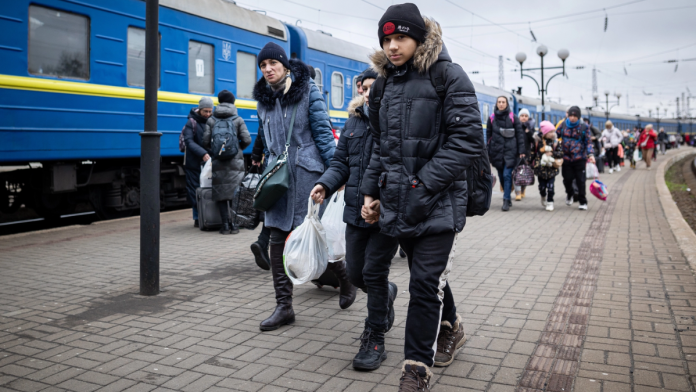Nearly 200 Ukrainians, including teenagers and entire families, have been sentenced by Russian-installed courts in the territories they occupies in Ukraine. These courts have accused them of “espionage” or “treason,” often after closed trials that offer little information about what really happened.
The convictions come from areas that Russia claimed to have annexed in 2022 — Luhansk, Donetsk, Zaporizhzhia, and Kherson. These regions were taken after controversial referendums that most of the world called fake and illegal. Even though Russia does not fully control all parts of these regions, it has set up its own legal and administrative systems there.
According to an investigation by an independent Russian news outlet, at least 190 people have been convicted of charges like spying or cooperating with foreign governments since 2022. Many of these people are believed to be ordinary Ukrainians — teachers, farmers, students, and shop owners — who simply lived in the wrong place at the wrong time.
The report warns that the real number of convictions is likely higher because not all court decisions in these territories are made public. Some trials are completely secret, and families are often not told where their loved ones are held or what charges they face.
Across party lines: Americans unite to arm Ukraine and tighten sanctions on Russia
Harsh Sentences and Fear in Communities
Two-thirds of the convictions have been for “espionage,” which under Russian law applies to people who are not Russian citizens. The rest were labeled “treason,” a charge used against those who are citizens of Russia. Some people who hold both Russian and Ukrainian passports have even been charged with both crimes at once.
The average prison sentence given by these occupation-run courts is more than 13 years. Some have been sentenced to life in prison. More than a quarter of those convicted are women, and at least eight were 19 years old or younger when they were arrested.
Human rights monitors have reported that at least five people have died while in Russian custody. In several of these cases, families were not informed of the deaths for weeks or months.
EU sanctions in crisis as Austria prioritizes bank losses over Russia pressure


